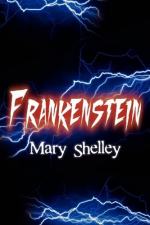|
This section contains 11,339 words (approx. 38 pages at 300 words per page) |

|
SOURCE: "Horror's Twin: Mary Shelley's Monstrous Eve," in The Madwoman in the Attic: The Woman Writer and the Nineteenth-Century Literary Imagination, Yale University Press, 1979, pp. 213-47.
In the following excerpt, Gilbert and Gubar view Frankenstein not so much in terms of Shelley's relationship to her own father as in her relationship to literary patriarchy in general, figured in John Milton's Paradise Lost. Noting that Shelley read Milton's poem before writing her novel, the critics assert that Shelley adopted the misogyny of Paradise Lost into her own "pained ambivalence toward mothers."
Many critics have noticed that Frankenstein (1818) is one of the key Romantic "readings" of Paradise Lost.14 Significantly, however, as a woman's reading it is most especially the story of hell: hell as a dark parody of heaven, hell's creations as monstrous imitations of heaven's creations, and hellish femaleness as a grotesque parody of heavenly maleness. But of course...
|
This section contains 11,339 words (approx. 38 pages at 300 words per page) |

|


